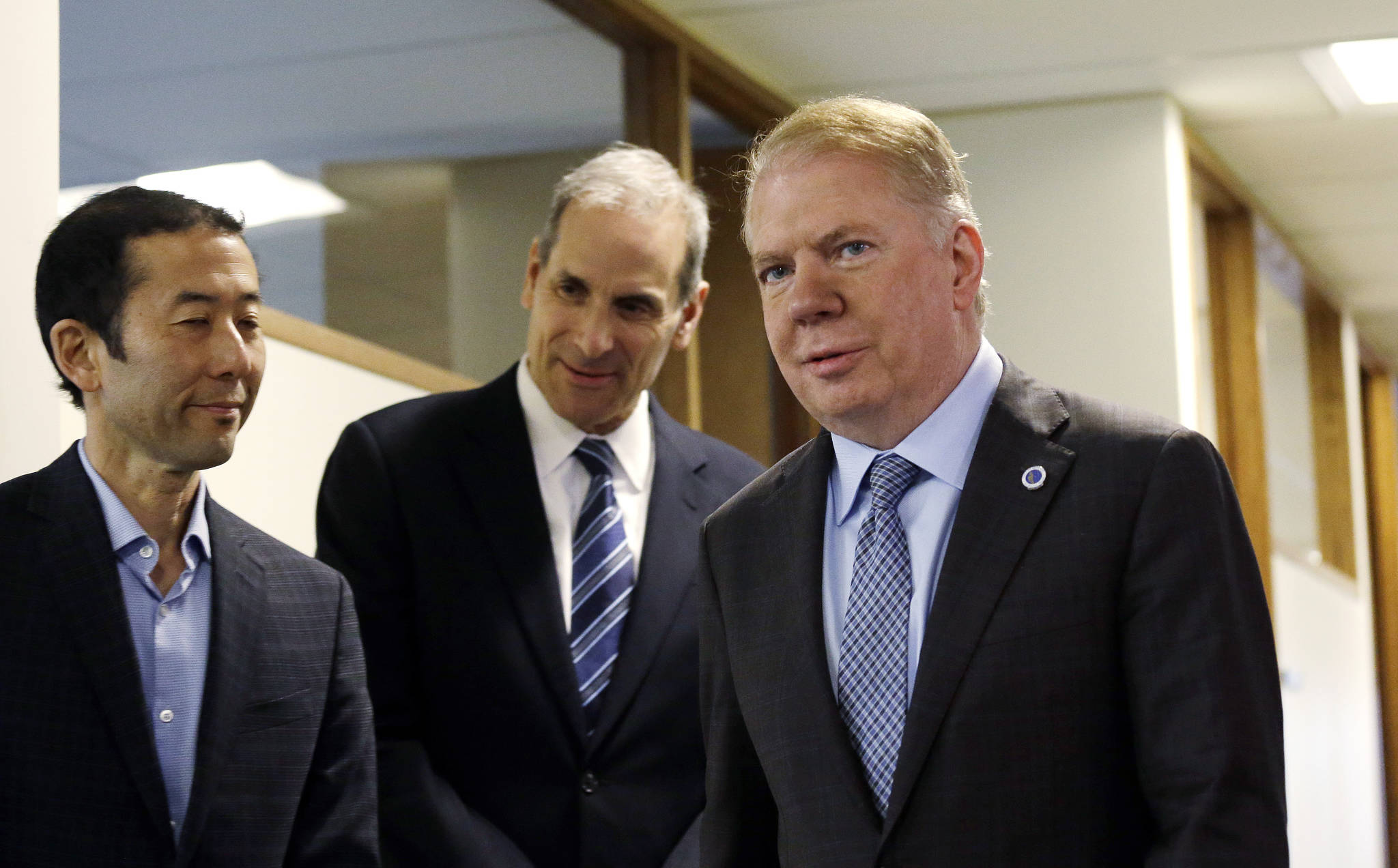If Ed Murray’s re-election team isn’t having the April it hoped for, March left the campaign little to complain about.
Public disclosure forms filed by his re-election campaign this week show the incumbent hauled in $68,554 in contributions over the month of March, padding his already substantial $305,895 war chest. By comparison, opponent Nikkita Oliver raised $2,797 in the first month of her decidedly grassroots campaign. Murray raised a total of $869,000 during the entire 2013 campaign.
March appears to have been his second biggest fundraising month of the campaign, trailing only October, in which he raised $126,703. Murray’s early successes may prove important as other people contemplate jumping into the mayor’s race against the now-damaged incumbent.
While a lawsuit filed by a Kent man last week claiming Murray sexually abused him as a minor has clouded Murray’s re-election chances, the financial reports are evidence of the huge advantage he would have over any would-be challenger as the May 19 filing deadline approaches. And even as Murray is politically wounded, his fundraising could complicate others’ calculus on entering the race—considered an inevitable development of the scandal.
Were Murray to draw a challenger whose politics more or less aligns with the mayor’s, that candidate would be drawing from the same donor pool Murray has already raided, meaning she or he may have to ask donors to cut a second check for them. That won’t be a problem for some deep-pocketed donors, but for others it could be a tough sell.
“Often times getting checks and endorsements is kind of a first-come, first-served thing,” says Ben Anderstone, a political consultant with Progressive Strategies Northwest.
“If a candidate has a similar donor base to the mayor, that could be, if not prohibitive, it could make things more difficult,” he says. “From a candidate psychology perspective, those phone calls could be hard to make.”
That said, Anderstone doesn’t think Murray’s successful fundraising to date will prove to be a deciding factor in whether he draws serious challengers in the coming weeks.
“Any candidate whose donor base is so shallow” that Murray’s fundraising would cause serious problems “is going to have trouble in the first place,” he says.
It’s not yet clear how the Kent man’s allegations, detailed in a recent Seattle Times story that included earlier allegations from two Portland men who say Murray also sexually abused them as underage teenagers in the 1980s, have affected Murray’s fundraising. But there are reasons the story may give donors pause, beyond the charges themselves. The Times reported that in 2008 Murray used campaign funds to hire a lawyer to discredit the two Portland accusers when they came forward. (Those allegations resulted in neither a lawsuit nor any press reports.) The state Public Disclosure Commission, which regulates campaign funding, said this week that it would not investigate whether that was a proper use of funds, due to statute of limitations.
With the accusations again coming forward, Jeff Reading, Murray’s personal spokesman, says that no campaign funds are being used to fight the lawsuit. Asked whether he himself is being paid with campaign dollars, Reading wrote in an email that it is “being determined.”
Murray has vowed to keep runing for re-election. His next fundraiser is on May 3, at China Harbor Restaurant. No doubt the campaign hopes May will shape up better than April did.
dperson@seattleweekly.com








